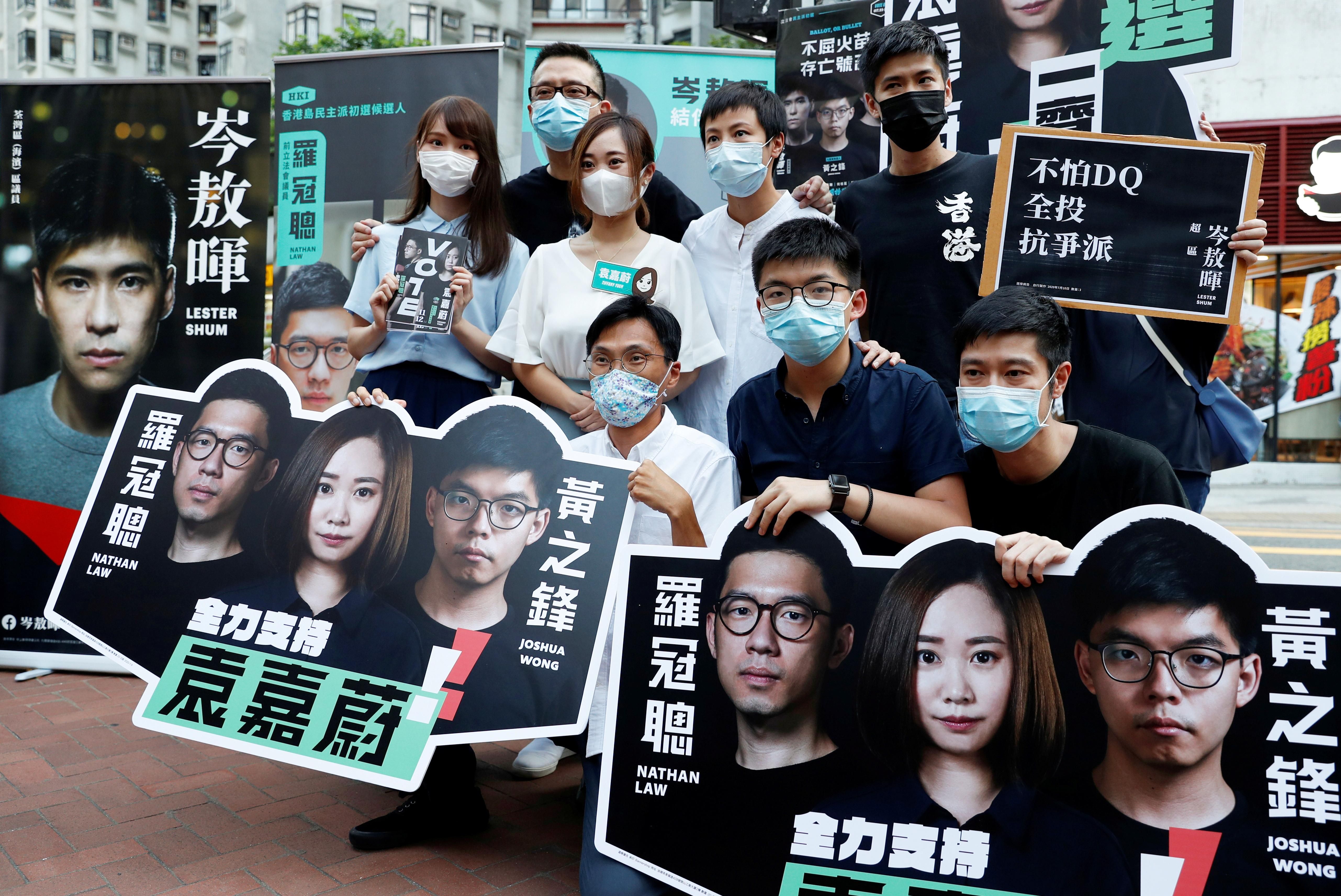What We’re Watching: Hong Kong crackdown, Maduro tightens grip in Venezuela, WHO out of Wuhan
China cracks down (again) on Hong Kong democracy: In the largest crackdown since China introduced its Hong Kong security law six months ago, police arrested 53 members of the city's pro-democracy movement. The detainees — who had helped organize an unofficial primary vote for opposition candidates ahead of elections later this year — are accused of trying to overthrow the city's pro-Beijing government. One of those jailed is a US lawyer and American citizen. In the same operation, police also raided the home of Joshua Wong, a prominent activist who is already serving a one-year prison term for standing up to China's takeover of Hong Kong. China says the activists are backed by foreigners who want to use Hong Kong as a base to undermine China's stability and security, while the opposition argues that China is just using the new law to silence legitimate dissent. Now, with most pro-democracy figures behind bars or in exile, the mass street protests that prompted the passage of the security law are unlikely to return, and the future of democracy in the city is bleak.
Maduro takes over parliament in Venezuela: Following recent elections largely boycotted by the opposition, allies of Venezuelan strongman Nicolas Maduro officially took control over the country's National Assembly this week. For the past several years the Assembly had been the only part of the government not in Maduro's grasp. During that time, the body was headed by opposition leader Juan Guaidó, who in 2018-2019 led mass protests over the authoritarian drift and economic incompetence of the Maduro regime, and was recognized as "interim president" by the US, EU, and most Latin American democracies. Since then, Guaidó's star has fallen – Maduro held his ground, the streets got tired, and the opposition couldn't unify. Now, Guaidó is left heading a shadow assembly that will still meet but has no real power, and his foreign backers will have to reassess whether continuing to support him is the best way to advance their interests in Venezuela.
Wuhan cover-up 2.0? World Health Organization experts investigating the origins of the coronavirus have been denied entry to Wuhan, the Chinese city where the initial outbreak of COVID-19 was reported over a year ago. China and the WHO — which for some were too cozy early in the pandemic — have been negotiating for months over this mission, which aims in part to assess whether the virus in fact came from a meat market or elsewhere. After taking flack for covering up the initial outbreak in Wuhan, Beijing had promised to be more forthcoming, but keeping WHO fact-finders out of Wuhan shows that Xi Jinping is still wary of any probe or evidence that might undermine China's international reputation — especially at a time when Beijing is deploying its COVID-19 vaccine diplomacy to win arms and minds in dozens of developing countries. But the world wants to know more about what happened in Wuhan, will credible answers ever emerge?